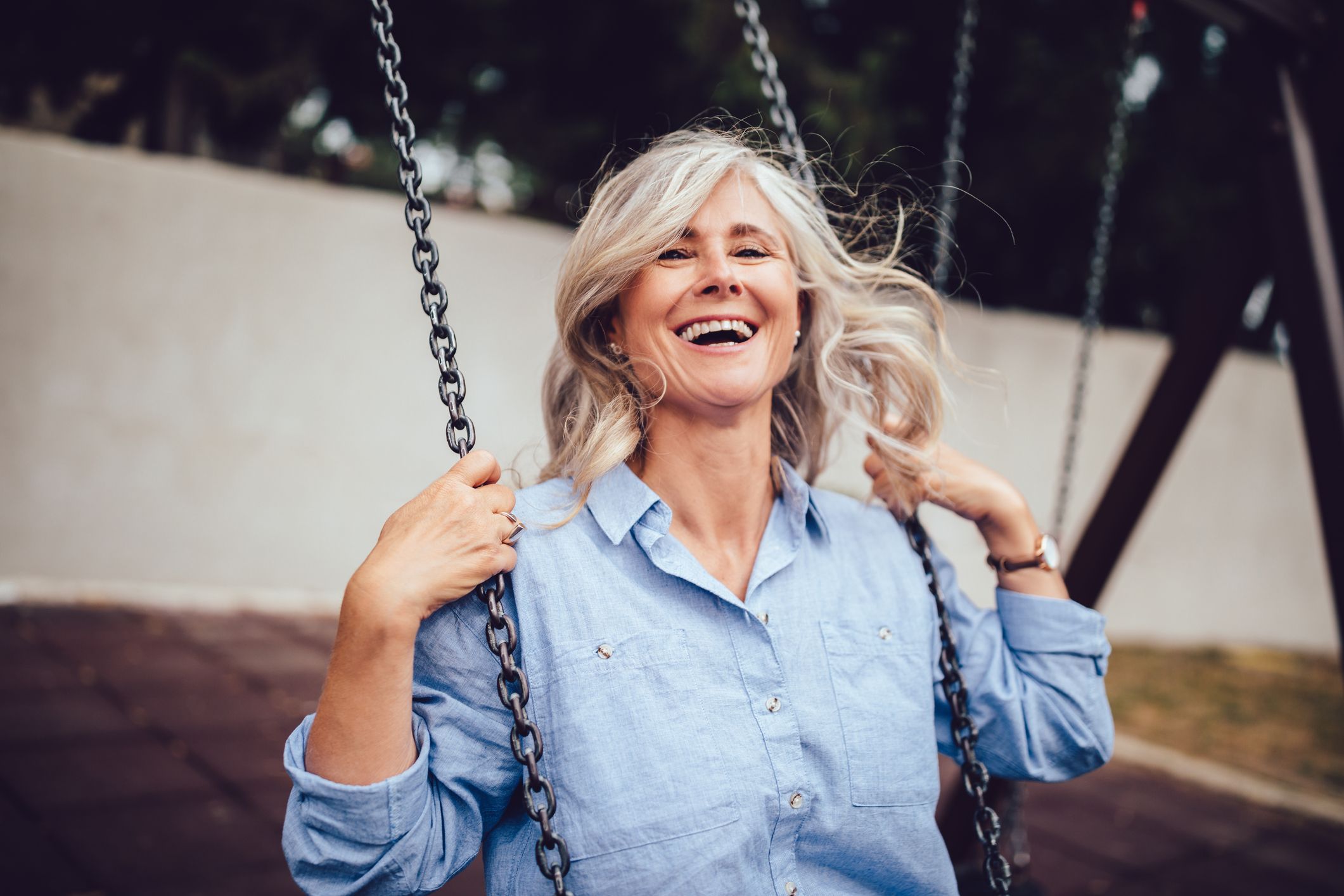While it's true that with age comes wisdom, you might be surprised to learn some things you do not know about aging.
And while it's also true that many of these challenges are hallmarks of aging, there's good news hiding among these facts: Living a healthy lifestyle can help you age well and help minimize or even bypass some of the "side effects" of aging.
1. You will shrink.
It's universal and begins around age 40. The main culprit: your spinal discs. Those are the gel-like sacs that cushion the vertebrae of your spine. What happens? The fluid they contain—about 80 percent of which is water—starts to dry up. As a result, the discs compress and become flatter, causing the space between your joints to narrow and your trunk to shorten.
Typically, we lose almost one-half inch every 10 years after 40, says Andrea Singer, MD, who is the chief medical officer of the National Osteoporosis Foundation. Most people end up two to three inches shorter than where they began.
Safely done, exercise will help keep your spine healthy and strong and keep you sitting and standing upright. And since weak abdominal muscles contribute to slouching (which makes you appear shorter), work those regularly with core-strengthening exercises, like planks.
Learn more about exercise that may slow aging.
2. You may be less thirsty.
The aging process can alter certain physiological control systems associated with thirst, which can put you at risk for dehydration. But fluids play an important role in digesting food, absorbing nutrients and ridding our bodies of waste. It's also important to drink enough water if you're taking certain medications; failing to drink a full 8 ounces of water may irritate your throat or make the medication less effective.
Remember that all fluid counts, and that includes things like coffee, milk, juice, soup and even foods (watermelon, celery, cucumbers and iceberg lettuce are among those richest in water content).
3. Your body will be more prone to injury.
Reduced coordination and balance. Wear and tear through the years. Fatigue and reduced joint flexibility and bone and muscle strength. A slower regeneration pace for tissues and cells. All can set you up for injury.
The irony? The things that stop many people from exercising can be improved with exercise.
Just exercise safely. No pain no gain went out with the leotard thongs we wore when we did aerobics in the '80s. And it's a good thing. That pain can be dangerous—and is always a sign to listen to your body. If you feel an unusual twinge or pain while you're exercising, take a moment to stop and listen. Chances are if you push through it, a small issue can become a major injury.
That's why it's important to balance your fitness plan and diversify it by doing a little of many things rather than one major thing. This prevents overuse injury from putting repeated stress on one body part. Also, when you focus on certain body parts, you overdevelop those but underdevelop others, increasing your risk for injury.
4. Your body shape shifts.
Once a "pear," now an "apple"? Of course, eating too much (obviously) and exercising too little will cause you to gain weight and add extra padding to certain areas. But more than that, our body composition—the fat, lean tissue (muscles and organs), bones and water—naturally undergoes changes.
For instance, with menopause and a decline in estrogen, progesterone and testosterone, fat begins to deposit around and inside the belly. (But even though fat is building up, the layer of fat under the skin gets smaller.) And the loss of muscle tissue and subsequent strength (sarcopenia) can make your body look (and feel) different.
5. Your balance may be off.
It can be more difficult to steady yourself if you trip or lose footing on the stairs because many sensory and motor systems change with age. Not only is your vision important in staying steady, but so is your vestibular system in your inner ear, your muscle strength, joint flexibility and reaction time. Heart disease, circulatory problems and certain medicines can also threaten your sense of equilibrium.
Berkeley Wellness offers some fantastic ways to maintain your balance as you age.
If all of the above makes you unhappy, don't be! There's much research and evidence that older people are happier than younger people, and there are many reasons for that. (Of course, there will always be the lifelong curmudgeons among us, but for the most part, we're happier as we get older.)
Read more: You Can Be Happier: My Top Nine Tips To Bringing More Happiness Into Your Life.
We are better able to regulate our emotions, able to draw on past experiences to get us through— and give us perspective on—the current ones.
We are more likely and better equipped to seek out experiences and people that will be positive and worthwhile.
We are generally less likely to pass judgment and more likely to accept that we can't please everyone all the time.
We know what matters most.


